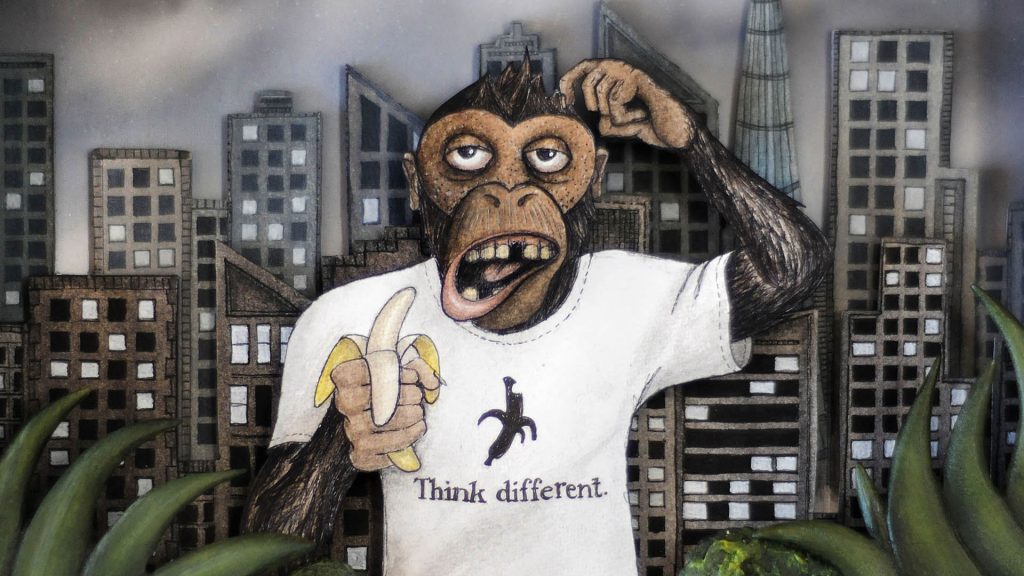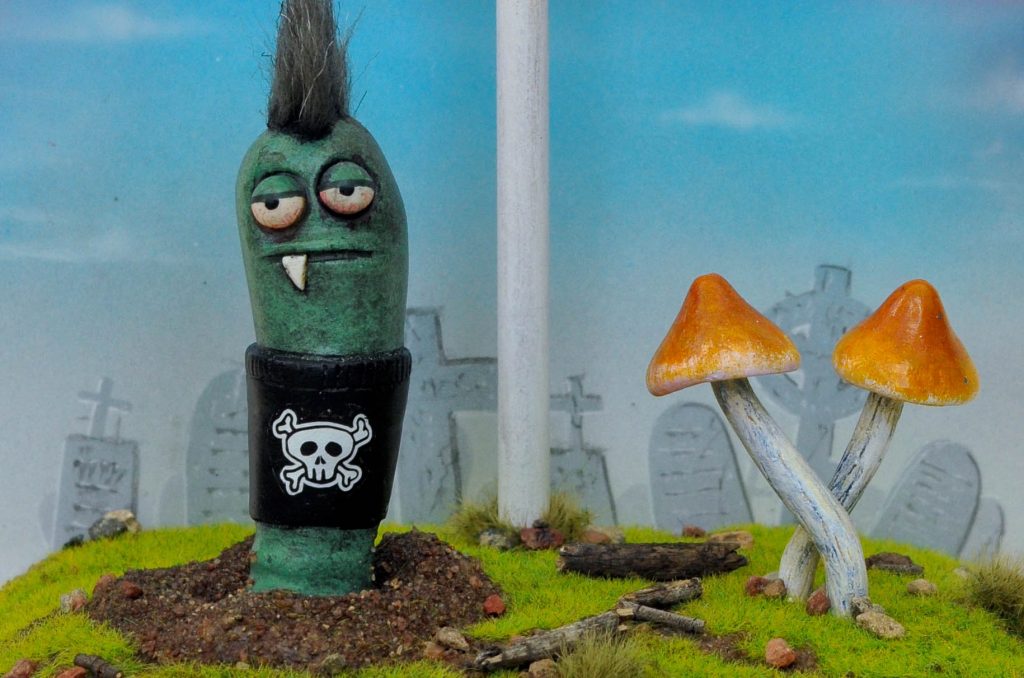Downtown: Through the lens of Buddhism
On the surface this satirical twist on Petula Clark’s song originally released in 1964 titled “Downtown” might just seem like a cheeky take on urban nightlife. But through a Buddhist lens, it doubles as a critique based on Samsara – the never-ending cycle of craving, suffering, and illusion. The song paints downtown as a neon-lit sanctuary for those looking to numb their worries, but beneath the flashing lights, it reveals a different truth: the more we chase pleasure, the more we feed the very suffering we’re trying to escape.
The Cycle of Craving and Dissatisfaction
Buddhism teaches that suffering (dukkha) comes from craving – chasing after things we think will make us happy, whether it’s pleasure, status, or an escape from reality. In the song, lead vocalist Johnathan Merriweather (aka “Snot” who is ironically a ‘puppet’) wanders into the neon glow of downtown, looking for a way to outrun loneliness and sorrow. And what does he find? A marketplace of quick fixes – sex, drugs, and entertainment – all promising relief. But here’s the irony: every indulgence only deepens the craving. He’s not escaping suffering; he’s reinforcing it.
The more you chase, the stronger the attachment grows. The hunger for more – more pleasure, more distractions, more ways to check out – never actually ends. It just keeps feeding itself, a self-made hamster wheel that’s hard to step off.
More is Always Better… Right?
The song pokes fun at the modern illusion that indulgence leads to happiness, which it does, but in a shortsighted manner. Buddhism calls this maya – the illusion that external pleasures will bring lasting fulfillment. Downtown, with its flashing lights and endless temptations, represents this illusion perfectly. It offers the promise of escape but delivers the opposite – deeper attachment, deeper dissatisfaction, and a stronger dependence on temporary fixes.
Escapism, Psychedelics, and the Illusion of Freedom
Lines like “Where you can find a pusher-man who’ll sell you up or downers. Or if you want a grand escape; Hallucinogen encounters.” highlights a common response to suffering – when life gets hard, it can be easy to fall into the trap of seeking a reprieve; a way out of the suffering.
“All for YOU!” – No matter who is doing the selling, when built upon our Capitalistic framework, anything can become a conveniently alturitic, marketed and sellable commodity.
Heidegger, in The Question Concerning Technology, argues that technology itself isn’t good or bad – it all depends on how we use the tools at our disposal. The same is true for Psychedelics, which have been shown to help people process trauma and break free from destructive thought patterns. But if they’re used with the intent of avoiding pain rather than working through it, they can reinforce the very escapism they can potentially challenge.
Traditional plant medicines like ayahuasca or peyote are often used in structured rituals that emphasize self-inquiry and responsibility. In contrast, within a consumer-driven, quick-fix culture, they risk becoming just another product – another way to chase euphoria while sidestepping the deeper work. The song satirizes this tension: what’s sold as transcendence can just as easily become another layer of illusion, depending on the mindset or intent behind its use.
Exploitation and Karma
The song doesn’t just explore self-inflicted suffering; it also highlights the cycle of systemic exploitation that comes with it. Whether it’s coming from a more socially accepted life-coach selling solutions of “success” or Instagramming Kundalini practioners promising manifestations of wealth, we have a plethora of solutions at our disposal.
“Downtown” sarcastically presents an alternate perspective to these socially accepted options. The sex industry, the drug trade, or general entertainment is designed to keep people coming back, but the essence remains the same. These aren’t just personal choices – they exist within a system that profits from craving and perpetuates itself in the process.
In Buddhism, karma isn’t just about individual consequences; it’s about how actions ripple outward, shaping the world. The last line – “Downtown, ready now to exploit you!” – drives this home. The pleasures people seek often come at a cost, not only to themselves but to others caught in the cycle.
Ethics Without Action is Just Philosophy
Seeing the illusion isn’t enough. If you recognize the system is flawed and do nothing, you’re not just a bystander – you’re part of it. Awareness comes with responsibility. It’s one thing to understand how craving leads to suffering; it’s another to actually live in a way that challenges that pattern.
Once you see the illusion, you can’t unsee it.
Beyond Downtown: Perspectives on Liberation
So what’s the alternative? Instead of seeking relief in distractions, maybe real freedom starts with turning inward – through mindfulness, reflection, or wisdom traditions that challenge the illusion.
The song’s satire asks us to consider whether pleasure-seeking without consideration of consequqnce really leads to a united sense of contentment, or just deeper craving.
Buddhism is one way of looking at this, but not the only way. As Heidegger points out, the way we frame our experience determines what we see as truth. Technology, psychedelics, and philosophy aren’t inherently liberating or oppressive – it all depends on how we engage with them. The question remains:
How do we progress as a society if we do not confront our perception of reality? Is it really helpful to stay content within a blissful sense of compliance?

